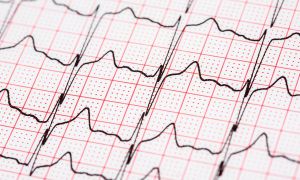If left untreated, atrial fibrillation increases the chance of having a stroke or a serious heart condition. A stroke is a sudden "brain attack" that often causes weakness or paralysis of the face or in a hand, arm, foot, or leg. With a stroke, you can have difficulty speaking, loss of feeling in an arm or leg, loss of consciousness, loss of vision, unsteadiness, and other serious problems. Strokes can quickly disable a person.
If your heart rhythm is extremely fast, atrial fibrillation can put you at risk for heart failure. Heart failure can come on gradually, with slowly increasing shortness of breath, especially with physical activity and exertion. Swelling from excess fluid, or edema, in the legs may gradually worsen and spread to the abdomen. Weakness, nausea, and other symptoms may result from heart failure. Treating the atrial fibrillation may prevent these serious problems from happening.
Continue Learning about Atrial Fibrillation
Important: This content reflects information from various individuals and organizations and may offer alternative or opposing points of view. It should not be used for medical advice, diagnosis or treatment. As always, you should consult with your healthcare provider about your specific health needs.

